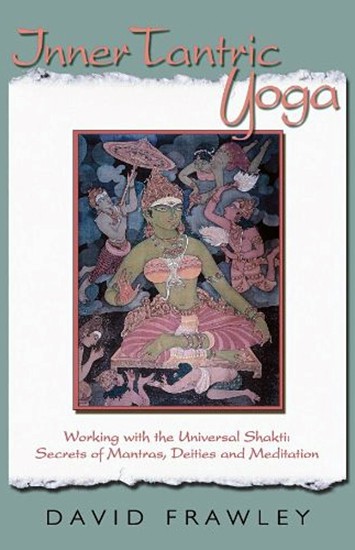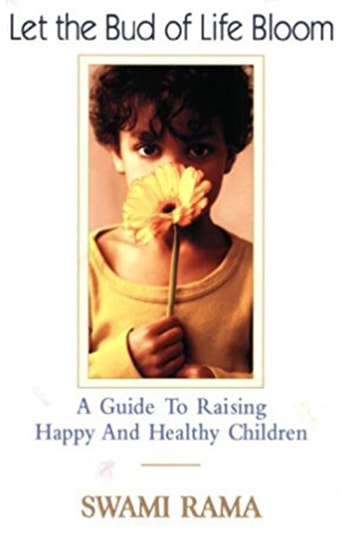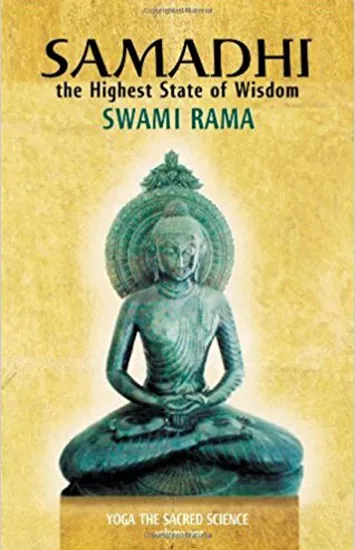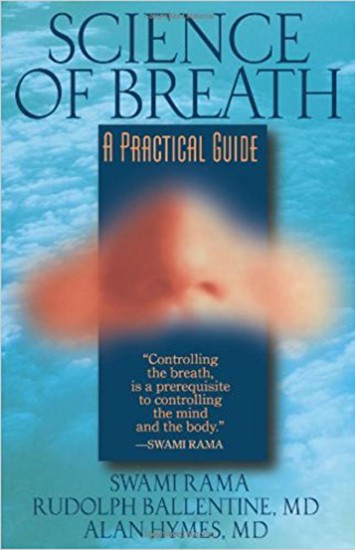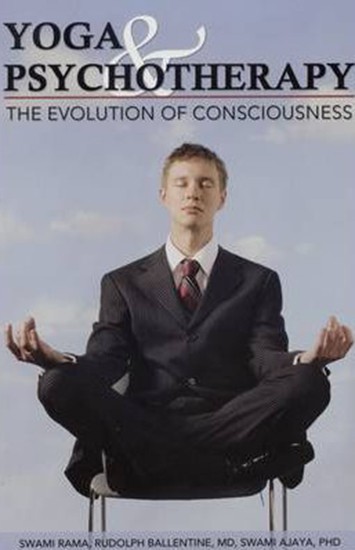-
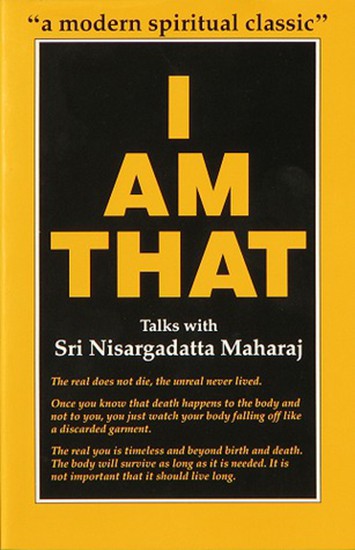 This collection of the timeless teachings of one of the greatest sages of India, Sri Nisargadatta Maharaj, is a testament to the uniqueness of the seer's life and work and is regarded by many as a modern spiritual classic. I Am That (first published in 1973) continues to draw new audiences and to enlighten seekers anxious for self-realization. Sri Nisargadatta Maharaj was a teacher who did not propound any ideology or religion, but gently unwrapped the mystery of the self. His message was simple, direct, and sublime. I Am That preserves his dialogs with the followers who came from around the world seeking guidance in destroying false identities. The sage's sole concern was with the human suffering and the ending of suffering.
This collection of the timeless teachings of one of the greatest sages of India, Sri Nisargadatta Maharaj, is a testament to the uniqueness of the seer's life and work and is regarded by many as a modern spiritual classic. I Am That (first published in 1973) continues to draw new audiences and to enlighten seekers anxious for self-realization. Sri Nisargadatta Maharaj was a teacher who did not propound any ideology or religion, but gently unwrapped the mystery of the self. His message was simple, direct, and sublime. I Am That preserves his dialogs with the followers who came from around the world seeking guidance in destroying false identities. The sage's sole concern was with the human suffering and the ending of suffering. -
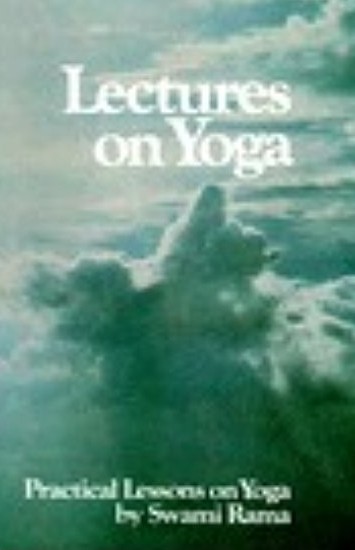 Lectures on Yoga is a systematic, easy to understand presentation of effective self-training programs to expand one's physical, mental and spiritual horizons. East and West are united to give readers a practical method to self-understanding; all ages will benefit from this lucid presentation of time-honored wisdom.
Lectures on Yoga is a systematic, easy to understand presentation of effective self-training programs to expand one's physical, mental and spiritual horizons. East and West are united to give readers a practical method to self-understanding; all ages will benefit from this lucid presentation of time-honored wisdom. -
 Based on the encounter between Yama, the King of Death, and Nachiketa, the seeker of death's meaning, this book examines the mystery and challenge of death. The story is taken from the Kathopanishad, one of the most important and ancient of all the scriptures. A philosophical understanding of the meaning and purpose of life and death is presented, along with a practical psychology for coping with life and for overcoming the fear of death.
Based on the encounter between Yama, the King of Death, and Nachiketa, the seeker of death's meaning, this book examines the mystery and challenge of death. The story is taken from the Kathopanishad, one of the most important and ancient of all the scriptures. A philosophical understanding of the meaning and purpose of life and death is presented, along with a practical psychology for coping with life and for overcoming the fear of death. -
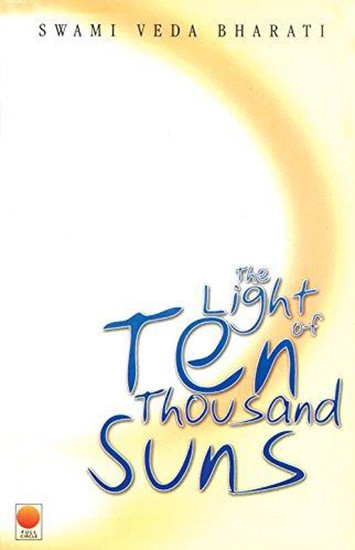 This special book is a set of inspirational teachings in poetic verse and prose of the major spiritual knowledge of the Himalayan yoga meditation tradition. "The Light of Ten Thousand Suns" is also the autobiography of Swami Veda Bharati, who allows us an intimate look into his own path of learning, teaching, and commitment to his Master.
This special book is a set of inspirational teachings in poetic verse and prose of the major spiritual knowledge of the Himalayan yoga meditation tradition. "The Light of Ten Thousand Suns" is also the autobiography of Swami Veda Bharati, who allows us an intimate look into his own path of learning, teaching, and commitment to his Master. -
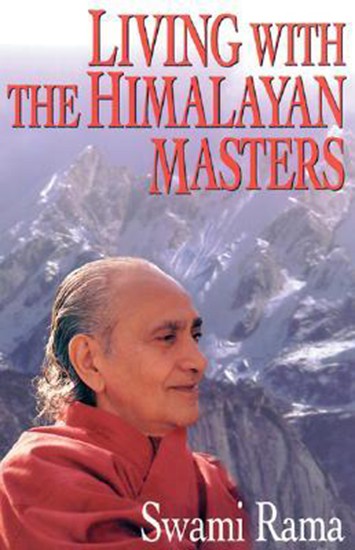 In this extraordinary account of his spiritual adventures, the author presents his encounters with Mahatma Gandhi, Sri Aurobindo, Rabindranath Tagore, a lady sage who never slept, and many other Himalayan masters. The author spent eleven months in a cave monastery and traveled to study in Tibet with his grandmaster. He author honors this spiritual teacher as a stream and a channel of wisdom. He modeled selflessness, fearlessness, faith, and determination as prerequisites for enlightenment. Swami Rama also writes about his experiences on the path of renunciation, which he calls "a razor's edge." He ponders the rich meanings of humility, conquering fear, trusting in divine protection, developing the powers of the mind, and casting off the body in death. One of the best examples of Swami Rama's humanity is conveyed in a brief chapter where he humorously tells of being mistaken as a ghost while meditating in a cemetery.
In this extraordinary account of his spiritual adventures, the author presents his encounters with Mahatma Gandhi, Sri Aurobindo, Rabindranath Tagore, a lady sage who never slept, and many other Himalayan masters. The author spent eleven months in a cave monastery and traveled to study in Tibet with his grandmaster. He author honors this spiritual teacher as a stream and a channel of wisdom. He modeled selflessness, fearlessness, faith, and determination as prerequisites for enlightenment. Swami Rama also writes about his experiences on the path of renunciation, which he calls "a razor's edge." He ponders the rich meanings of humility, conquering fear, trusting in divine protection, developing the powers of the mind, and casting off the body in death. One of the best examples of Swami Rama's humanity is conveyed in a brief chapter where he humorously tells of being mistaken as a ghost while meditating in a cemetery. -
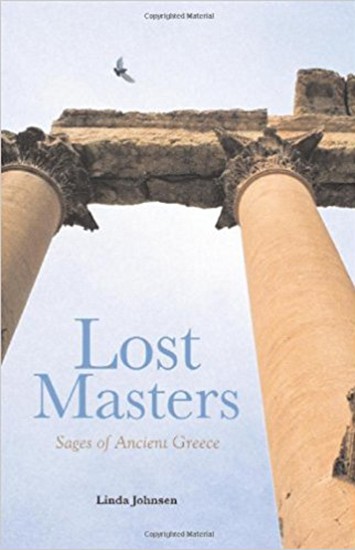 Rediscover the long-forgotten spiritual masters of Egypt and Europe. Johnsen, a leading author on Eastern spirituality, reveals how some of the most famous Greek thinkers – including Plato, Pythagoras, and Plutarch – understood the importance of harmony between mind and body, and practiced ancient yogic techniques, including meditation and vegetarianism. This book brings to light long-neglected historical accounts by the ancient Greeks themselves describing their pilgrimages to India and their encounters with enlightened masters of the East.
Rediscover the long-forgotten spiritual masters of Egypt and Europe. Johnsen, a leading author on Eastern spirituality, reveals how some of the most famous Greek thinkers – including Plato, Pythagoras, and Plutarch – understood the importance of harmony between mind and body, and practiced ancient yogic techniques, including meditation and vegetarianism. This book brings to light long-neglected historical accounts by the ancient Greeks themselves describing their pilgrimages to India and their encounters with enlightened masters of the East. -
 This inspiring book will be helpful to anyone who is seeking to understand the dynamic interplay between loving relationships and the path of spirituality. In clear, candid language, Swami Rama presents his vision of the potential that marriage and family life have to help us open our heart, expand our personality, and contribute to our spiritual unfoldment.
This inspiring book will be helpful to anyone who is seeking to understand the dynamic interplay between loving relationships and the path of spirituality. In clear, candid language, Swami Rama presents his vision of the potential that marriage and family life have to help us open our heart, expand our personality, and contribute to our spiritual unfoldment. -
 Siegel, a New Haven surgeon, believes that the power of healing stems from the human mind and will, that his scalpel only buys time against cancer, and that self love and determination are more important than choice of therapy. His philosophy has caused radical changes in his practice. Siegel recounts many arresting anecdotes: joyous stories of patients who survived against all odds, sad chronicles of those who seemingly gave up and assented to their own deaths. The author's credentials make this one of the more plausible books on the mind-body connection.
Siegel, a New Haven surgeon, believes that the power of healing stems from the human mind and will, that his scalpel only buys time against cancer, and that self love and determination are more important than choice of therapy. His philosophy has caused radical changes in his practice. Siegel recounts many arresting anecdotes: joyous stories of patients who survived against all odds, sad chronicles of those who seemingly gave up and assented to their own deaths. The author's credentials make this one of the more plausible books on the mind-body connection. -
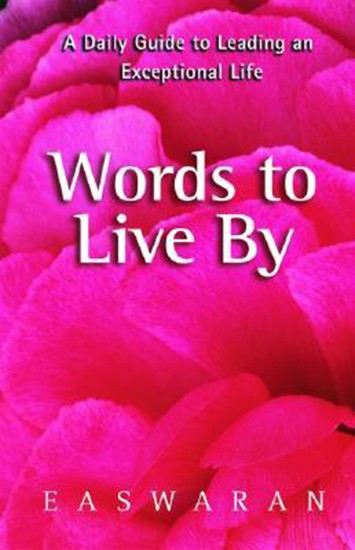 This warmly encouraging collection of daily readings offers immediate inspiration for readers seeking a more spiritually grounded lifestyle. Each reading is based on a quotation from one of the world’s great philosophers, poets, saints, and sages. Augustine and Einstein, Emily Dickinson and Jalaladdin Rumi, Biblical verses, Buddhist sutras, Hasidic proverbs, and Hindu Upanishads can all be found here. Each quote is accompanied by a commentary from Easwaran, explaining how the wisdom of the ages can help us here and now. Some days offer gentle reminders to slow down and be mindful. Other days give advice for changing an unwanted habit, mending a relationship, staying strong in hard times, or striving toward the peaks of spirituality described in all religions. This is a book to read in the morning to start the day right, or at night to prepare for peaceful rest. Each day, each year, brings fresh insights and inspiration.
This warmly encouraging collection of daily readings offers immediate inspiration for readers seeking a more spiritually grounded lifestyle. Each reading is based on a quotation from one of the world’s great philosophers, poets, saints, and sages. Augustine and Einstein, Emily Dickinson and Jalaladdin Rumi, Biblical verses, Buddhist sutras, Hasidic proverbs, and Hindu Upanishads can all be found here. Each quote is accompanied by a commentary from Easwaran, explaining how the wisdom of the ages can help us here and now. Some days offer gentle reminders to slow down and be mindful. Other days give advice for changing an unwanted habit, mending a relationship, staying strong in hard times, or striving toward the peaks of spirituality described in all religions. This is a book to read in the morning to start the day right, or at night to prepare for peaceful rest. Each day, each year, brings fresh insights and inspiration. -
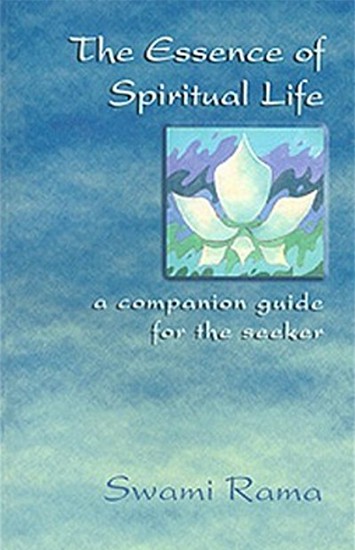 This concise collection of Swami Rama's teachings serves as a practical guide for the spiritual seeker. Spiritual practice leads the seeker towards inner experiences of divinity that further one towards attaining the goal of life. Swami Rama, yogi, scientist, philosopher and humanitarian, was deeply steeped in the spiritual traditions of the Himalayan sages. He was a free thinker, guided by direct experience and inner wisdom. His teachings are universal and nonsectarian, providing a bridge between the East and the West.
This concise collection of Swami Rama's teachings serves as a practical guide for the spiritual seeker. Spiritual practice leads the seeker towards inner experiences of divinity that further one towards attaining the goal of life. Swami Rama, yogi, scientist, philosopher and humanitarian, was deeply steeped in the spiritual traditions of the Himalayan sages. He was a free thinker, guided by direct experience and inner wisdom. His teachings are universal and nonsectarian, providing a bridge between the East and the West. -
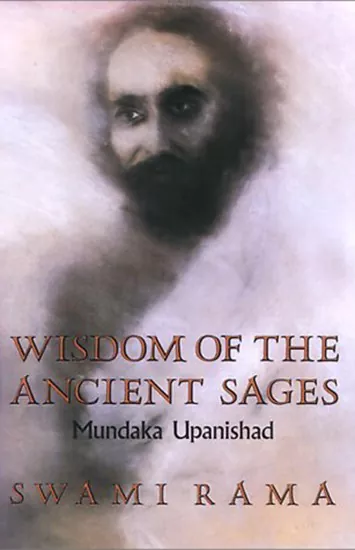 In Wisdom of the Ancient Sages, Swami Rama shares with the modern world the powerful and inspiring teachings of one of the worlds greatest spiritual texts: the Mundaka Upanishad. This beautiful translation and commentary affirms human nature as peaceful, creative, and transcendent. Its message will assist anyone who seeks to walk the path of personal andspiritual development.
In Wisdom of the Ancient Sages, Swami Rama shares with the modern world the powerful and inspiring teachings of one of the worlds greatest spiritual texts: the Mundaka Upanishad. This beautiful translation and commentary affirms human nature as peaceful, creative, and transcendent. Its message will assist anyone who seeks to walk the path of personal andspiritual development. -
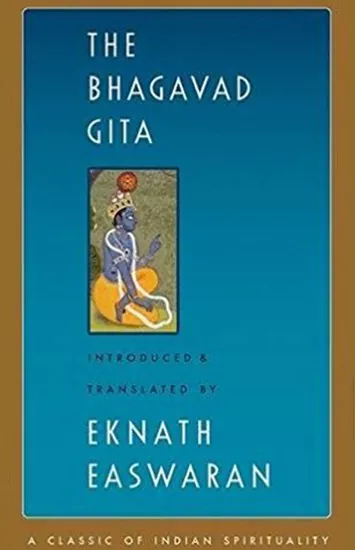 Vivid literature, lofty philosophy -- the Bhagavad Gita distills the finest in India's vast and varied culture On the morning of battle, facing Armageddon, prince Arjuna loses his nerve and refuses to fight. Krishna knows better: "Your very nature will drive you to fight. Your only choice is what to fight against." His advice gives an inspiring model of the man or woman of action -- the person who aims at goodness in a world of conflict and change. In this translation, the Gita stands out as a book of choices -- direct, practical, universal. The introduction sketches the background of the poem and gives clear, contemporary explanations of the basic ideas of Indian philosophy: karma, reincarnation, yoga, freedom. Separate chapter introductions outline the drama as it unfolds.In the Bhagavad Gita, Prince Arjuna asks direct, uncompromising questions of his spiritual guide on the eve of a great battle.In this best-selling and expanded edition of the most famous --and popular -- of Indian scriptures, Eknath Easwaran contextualizes the book culturally and historically and explains the key concepts of Hindu religious thought and the technical vocabulary of yoga. Chapter introductions, notes, and a glossary help readers understand the book's message. Most importantly, this translation uses simple, clear language to impart the poetry, universality, and timelessness of the Gita's teachings.
Vivid literature, lofty philosophy -- the Bhagavad Gita distills the finest in India's vast and varied culture On the morning of battle, facing Armageddon, prince Arjuna loses his nerve and refuses to fight. Krishna knows better: "Your very nature will drive you to fight. Your only choice is what to fight against." His advice gives an inspiring model of the man or woman of action -- the person who aims at goodness in a world of conflict and change. In this translation, the Gita stands out as a book of choices -- direct, practical, universal. The introduction sketches the background of the poem and gives clear, contemporary explanations of the basic ideas of Indian philosophy: karma, reincarnation, yoga, freedom. Separate chapter introductions outline the drama as it unfolds.In the Bhagavad Gita, Prince Arjuna asks direct, uncompromising questions of his spiritual guide on the eve of a great battle.In this best-selling and expanded edition of the most famous --and popular -- of Indian scriptures, Eknath Easwaran contextualizes the book culturally and historically and explains the key concepts of Hindu religious thought and the technical vocabulary of yoga. Chapter introductions, notes, and a glossary help readers understand the book's message. Most importantly, this translation uses simple, clear language to impart the poetry, universality, and timelessness of the Gita's teachings. -
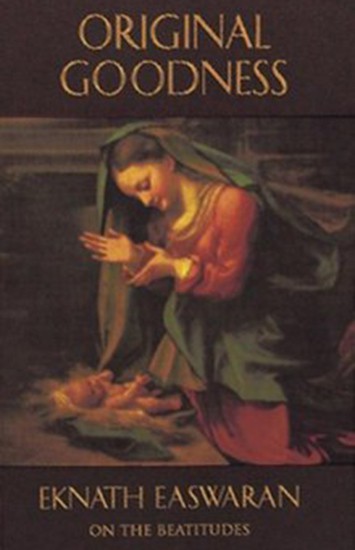 Using exhilarating quotes from numerous Christian mystics, Easwaran focuses on the idea of "original goodness," the spark of divinity that is every individual's birthright, regardless of personal assets or liabilities. The spiritual resources everyone needs love, compassion, meaning, hope, freedom from fear are already there, ready to be uncovered. Original Goodness includes instructions on how to meditate, and how to apply the power and insights of meditation to everyday life. Original Goodness is part of a three-volume series, Classics of Christian Inspiration, which collects the best writing of Eknath Easwaran on well-loved and inspiring passages and mystics in the Christian tradition.
Using exhilarating quotes from numerous Christian mystics, Easwaran focuses on the idea of "original goodness," the spark of divinity that is every individual's birthright, regardless of personal assets or liabilities. The spiritual resources everyone needs love, compassion, meaning, hope, freedom from fear are already there, ready to be uncovered. Original Goodness includes instructions on how to meditate, and how to apply the power and insights of meditation to everyday life. Original Goodness is part of a three-volume series, Classics of Christian Inspiration, which collects the best writing of Eknath Easwaran on well-loved and inspiring passages and mystics in the Christian tradition. -
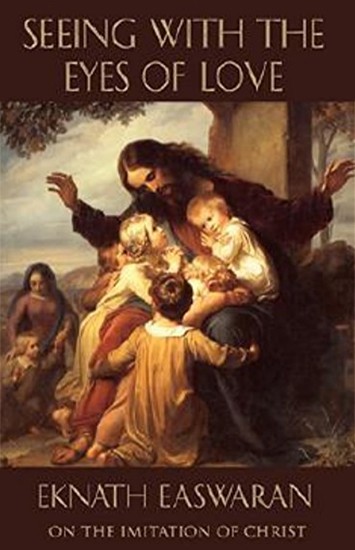 As we learn to rejoice in “Lord God, thou holy lover of my soul,” we begin to glimpse the transformative power of divine love in our lives. In this anecdotal, warm, and intensely practical commentary on Thomas a Kempis’s Imitation of Christ, Easwaran examines this enduring Christian passage line by line to show us what love is and how to overcome obstacles to loving more fully.
As we learn to rejoice in “Lord God, thou holy lover of my soul,” we begin to glimpse the transformative power of divine love in our lives. In this anecdotal, warm, and intensely practical commentary on Thomas a Kempis’s Imitation of Christ, Easwaran examines this enduring Christian passage line by line to show us what love is and how to overcome obstacles to loving more fully. -
Out of stock
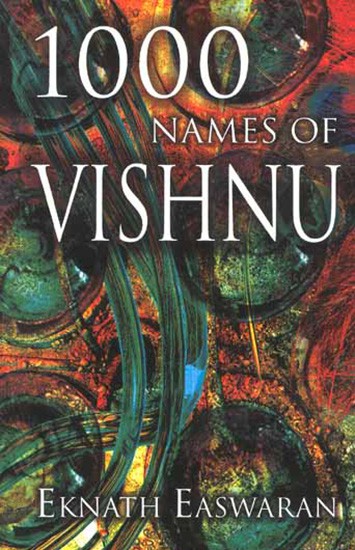 In each piece, Eknath Easwaran selects one of India's traditional thousand names of God and shows its universal significance: that these are not only names of God, but also aspects of the spark of divinity within us.
In each piece, Eknath Easwaran selects one of India's traditional thousand names of God and shows its universal significance: that these are not only names of God, but also aspects of the spark of divinity within us. -
 Among the oldest of India's spiritual texts, the Upanishads are records of intensive question-and-answer sessions given by illumined sages to their students. Widely featured in philosophy courses, the Upanishads have puzzled and inspired wisdom seekers from Yeats to Schopenhauer. Eknath Easwaran makes this challenging text more accessible by selecting the passages most relevant to readers seeking timeless truths today. His best-selling, accessible, highly readable translation and lively foreword place the teachings in a contemporary context for students and general readers alike.
Among the oldest of India's spiritual texts, the Upanishads are records of intensive question-and-answer sessions given by illumined sages to their students. Widely featured in philosophy courses, the Upanishads have puzzled and inspired wisdom seekers from Yeats to Schopenhauer. Eknath Easwaran makes this challenging text more accessible by selecting the passages most relevant to readers seeking timeless truths today. His best-selling, accessible, highly readable translation and lively foreword place the teachings in a contemporary context for students and general readers alike.

